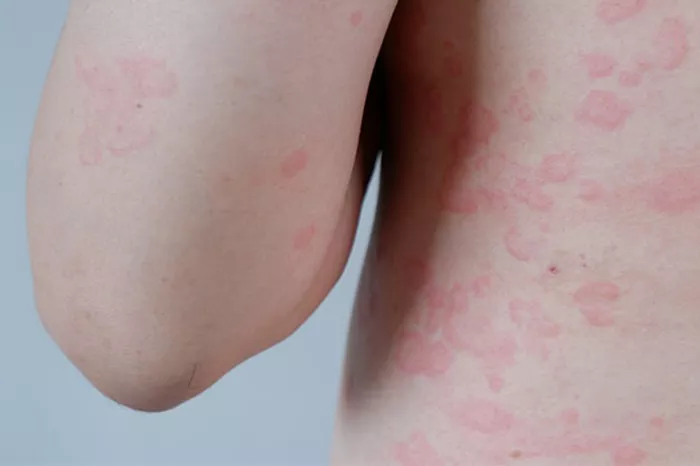Bipolar disorder is a mental health condition characterized by extreme mood swings that include emotional highs (mania or hypomania) and lows (depression). These mood swings can affect a person’s energy levels, behavior, and ability to function in daily life. Identifying bipolar disorder can be challenging, as symptoms can vary widely among individuals and may overlap with other mental health conditions. However, recognizing the signs and symptoms of bipolar disorder is crucial for early intervention and effective treatment. This article explores how to identify a person with bipolar disorder, including common signs, diagnostic criteria, and potential red flags.
Understanding Bipolar Disorder
Before discussing how to identify bipolar disorder, it’s essential to understand the condition itself. Bipolar disorder is a chronic mental illness characterized by significant shifts in mood, energy, and activity levels. These mood swings typically occur in episodes, with periods of mania or hypomania alternating with periods of depression. The severity and frequency of these episodes can vary, and individuals may experience periods of stability between episodes.
Bipolar disorder is classified into several subtypes, including:
Bipolar I Disorder: Characterized by manic episodes that last at least seven days or are severe enough to require immediate medical attention. Depressive episodes may also occur.
Bipolar II Disorder: Characterized by hypomanic episodes that alternate with depressive episodes. Hypomania is less severe than mania and does not typically cause significant impairment.
Cyclothymic Disorder: Characterized by numerous periods of hypomanic symptoms and depressive symptoms that last for at least two years (one year in children and adolescents).
Identifying Signs and Symptoms
Manic Episodes
One of the hallmark features of bipolar disorder is the presence of manic or hypomanic episodes. Mania is characterized by an elevated mood, increased energy or activity levels, and a decreased need for sleep. Some common signs and symptoms of manic episodes include:
Elevated Mood: Feeling euphoric, excessively happy, or irritable for an extended period.
Increased Energy: Having an abundance of energy and engaging in multiple activities simultaneously.
Rapid Speech: Speaking quickly, with racing thoughts and difficulty maintaining focus.
Impulsivity: Engaging in risky behaviors such as reckless driving, excessive spending, or substance abuse.
Decreased Need for Sleep: Feeling rested and energetic despite sleeping less than usual.
Depressive Episodes
In addition to manic or hypomanic episodes, individuals with bipolar disorder also experience depressive episodes. Depression is characterized by feelings of sadness, hopelessness, and a loss of interest or pleasure in activities once enjoyed. Some common signs and symptoms of depressive episodes include:
Persistent Sadness: Feeling sad, empty, or hopeless most of the day, nearly every day.
Loss of Interest: Losing interest in activities once enjoyed, including hobbies, socializing, or work.
Fatigue: Feeling tired or low on energy, even after getting enough sleep.
Changes in Appetite: Experiencing significant changes in appetite, resulting in weight loss or gain.
Difficulty Concentrating: Having trouble focusing, making decisions, or remembering things.
Suicidal Thoughts: Having thoughts of death or suicide, or attempting suicide.
Mixed Episodes
Some individuals with bipolar disorder may experience mixed episodes, where symptoms of mania and depression occur simultaneously or in rapid succession. During mixed episodes, individuals may feel agitated, irritable, or have racing thoughts while also experiencing depressive symptoms such as sadness or hopelessness.
Cyclical Nature of Symptoms
One characteristic feature of bipolar disorder is its cyclical nature, with mood episodes typically occurring in distinct periods of time. For example, a person may experience a manic episode followed by a period of stability or a depressive episode. Tracking mood changes over time can help identify patterns and assist in diagnosing bipolar disorder.
Diagnostic Criteria
The diagnosis of bipolar disorder is based on specific criteria outlined in the Diagnostic and Statistical Manual of Mental Disorders (DSM-5), published by the American Psychiatric Association. To receive a diagnosis of bipolar disorder, an individual must meet the following criteria:
Presence of Manic, Hypomanic, or Mixed Episodes: The individual has experienced one or more manic, hypomanic, or mixed episodes. These episodes must be distinct from the person’s usual behavior and significantly impact their functioning.
Duration and Severity of Episodes: The duration and severity of mood episodes must meet specific criteria outlined in the DSM-5. For example, manic episodes typically last at least one week, while hypomanic episodes last at least four consecutive days.
Absence of Other Explanations: The symptoms cannot be better explained by another medical condition, such as substance abuse, medication side effects, or another psychiatric disorder.
Significant Impairment or Distress: The symptoms must cause significant impairment in social, occupational, or other areas of functioning, or result in distress or impairment in relationships.
Red Flags and Warning Signs
In addition to the specific signs and symptoms outlined above, certain red flags or warning signs may indicate the presence of bipolar disorder. These may include:
Family History: A family history of bipolar disorder or other mood disorders may increase an individual’s risk of developing the condition.
Substance Abuse: Engaging in substance abuse, particularly alcohol or stimulants, may be a warning sign of underlying mood instability.
Impulsivity or Risky Behaviors: Engaging in impulsive or risky behaviors, such as reckless driving, gambling, or promiscuity, may indicate underlying manic or hypomanic symptoms.
Difficulty Maintaining Relationships: Difficulty maintaining stable relationships or frequent conflicts with others may be a sign of mood instability or interpersonal difficulties associated with bipolar disorder.
Job Instability: Difficulty maintaining stable employment or frequent job changes may be related to mood fluctuations and impaired functioning during depressive or manic episodes.
Seeking Professional Help
If you suspect that you or someone you know may have bipolar disorder, it’s essential to seek professional help from a qualified mental health professional. A psychiatrist or psychologist can conduct a comprehensive evaluation, including a detailed medical history, psychiatric assessment, and psychological testing, to determine an accurate diagnosis.
Treatment for bipolar disorder typically involves a combination of medication, psychotherapy, and lifestyle changes. Mood stabilizers, antidepressants, antipsychotic medications, and psychotherapy techniques such as cognitive-behavioral therapy (CBT) or interpersonal therapy (IPT) may be recommended to manage symptoms and improve functioning.
Early intervention and treatment are critical for managing bipolar disorder effectively and minimizing the impact of mood episodes on daily life. With proper diagnosis and treatment, individuals with bipolar disorder can lead fulfilling and productive lives.
Conclusion
Identifying a person with bipolar disorder can be challenging due to the complex and variable nature of the condition. However, recognizing the signs and symptoms of bipolar disorder, including manic, depressive, and mixed episodes, as well as specific red flags and warning signs, is essential for early intervention and effective treatment.
If you or someone you know is experiencing symptoms of bipolar disorder, it’s essential to seek professional help from a qualified mental health professional. With proper diagnosis and treatment, individuals with bipolar disorder can manage their symptoms, improve their quality of life, and lead fulfilling and productive lives.
[inline_related_posts title=”You Might Be Interested In” title_align=”left” style=”list” number=”6″ align=”none” ids=”9472,9469,9462″ by=”categories” orderby=”rand” order=”DESC” hide_thumb=”no” thumb_right=”no” views=”no” date=”yes” grid_columns=”2″ post_type=”” tax=””]



































